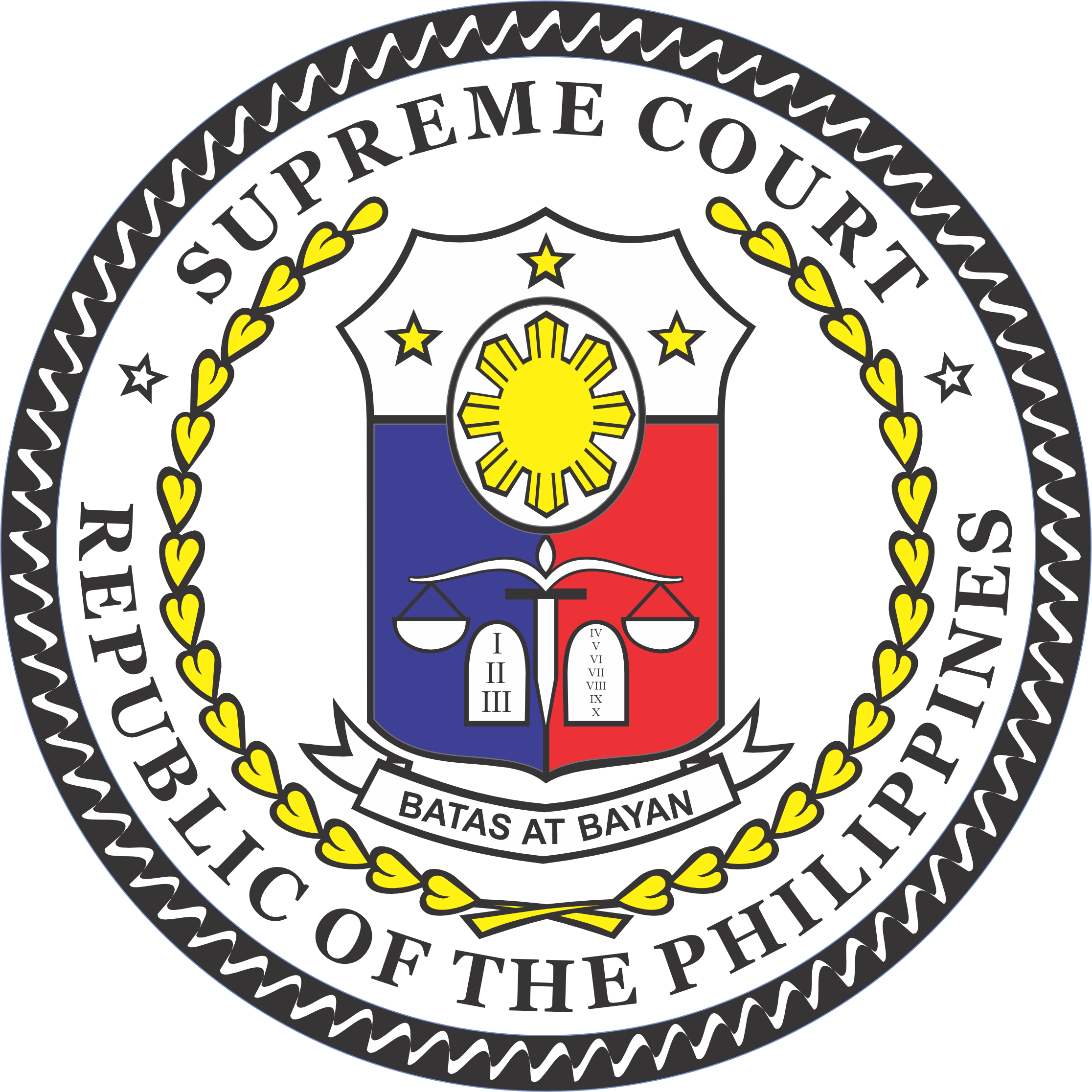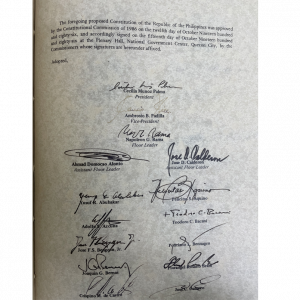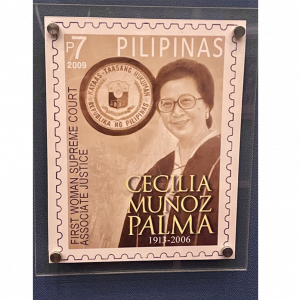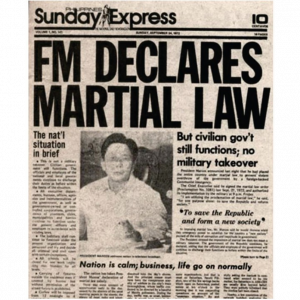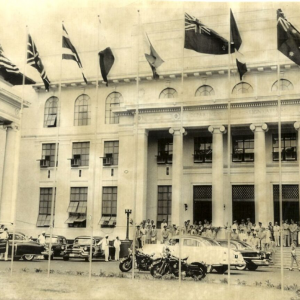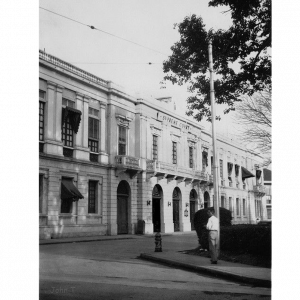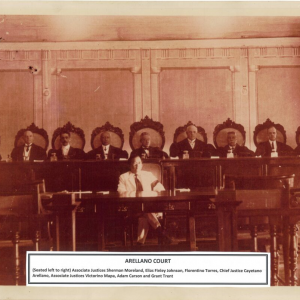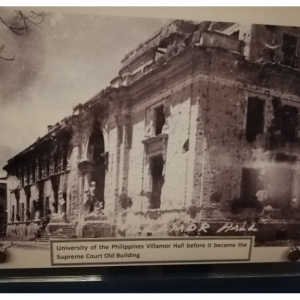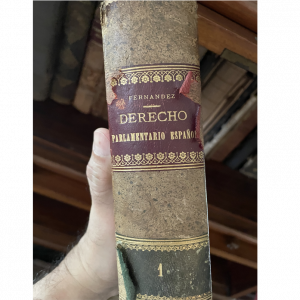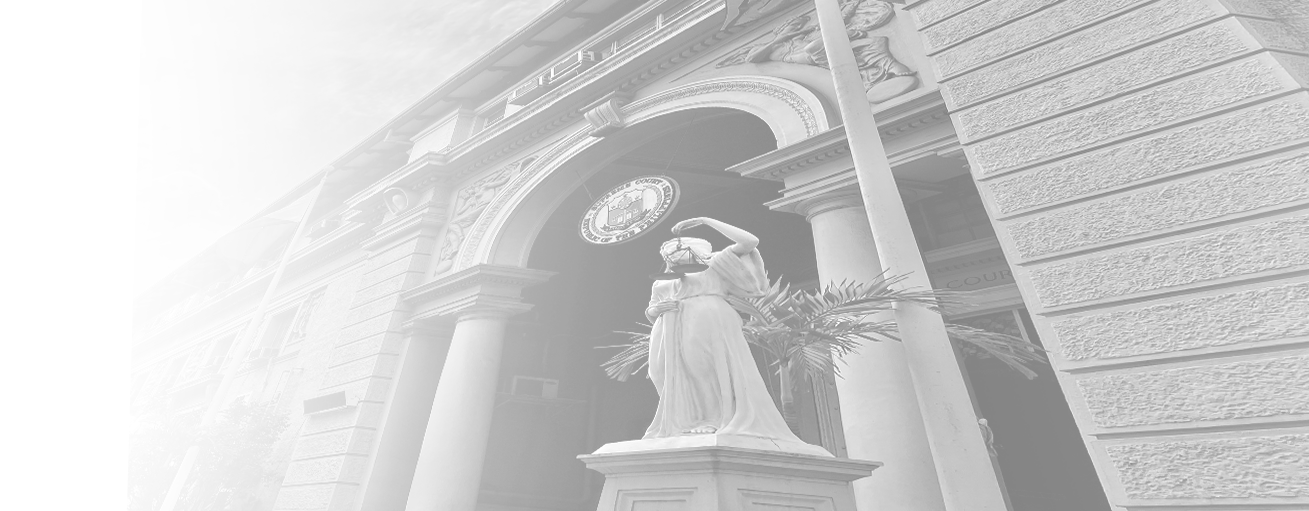

Slide
IBP Chapters
Slide
IBP Chapters
For your Information:
This page is not optimized to be displayed on a mobile device. For better browsing experience, please use the desktop version of this website.
| wdt_ID | Chapter | President | Office No. | Services | Address | City | |
|---|---|---|---|---|---|---|---|
| 1 | CALMANA | DONN ROBERT O. SPALDING | +63 324 5460 Local 326 / +63 922 697 2224 | ibp.calmana@ibp.ph | legal aid,outreach,counseling,case handling | IBP Office, Room 12, Judicial Complex Building, 10th Avenue, Caloocan City | Caloocan |
| 2 | CAPIZ | MARIA LEOBETH B. DESLATE-DELICANA | (036) 621-1499 | ibpcapiz@yahoo.com | free legal aid services | 2/F Hall of Justice, Burgos Street, St., Roxas City, Capiz | Roxas |
| 3 | DAVAO DEL NORTE | MARIA LINA F. BAURA | (084) 655-9435 | N/A | free legal aid, pro bono | IBP Bldg., Capitol Compound, Mankilam, Tagum City, Davao del Norte | Tagum |
| 4 | DAVAO DEL SUR | LUCIANO G. CAMEROS | 0919 441 7315 | ibpdavaodelsurchapter@yahoo.com | free legal aid | Magsaysay St., Brgy. Zone 3, Digos City, Davao Del Sur | Digos |
| 5 | ILOILO | LEO S. SOMBIRO | (033) 335-3065 | ibpilochap@yahoo.com | free legal aid, legal education | 4/F Iloilo Hall of Justice, Bonifacio Dirve, Iloilo City | Iloilo |
| 6 | LEYTE | LEO S. GIRON | (053) 321 7811 | ibpleytechapter@yahoo.com.ph | legal aid services | IBP Office, Leyte Sports Dev. Center Building, Sta.Cruz St., Tacloban City, Leyte | Tacloban |
| 7 | MISAMIS ORIENTAL | EDDIE C. CUARESMA | (088) 856 4209 | ibp_misor@yahoo.com | free legal aid services | IBP Building Capitol Compound, A. Luna Street, Cagayan De Oro City, Misamis Oriental | Cagayan de Oro |
| 8 | PPLM | PAUL JOMAR S. ALCUDIA | 831-1477 | ibp_pplm2007@yahoo.com | free legal aid services | IBP Office, Rm. 217, Pasay City Hall, FB Harrison Street, Pasay City | Pasay |
| 9 | RSM | JAIME S. DEL ROSARIO | 631-0146 | ibp_rizal@yahoo.com | free legal aid services | 4/F IBP Bldg., Doña Julia Vargas Ave., Ortigas Center, Pasig City | Pasig |
| 10 | SURIGAO DEL NORTE | JOSE V. BEGIL, JR. | (086) 826-6015 | ibpsurigaodelnorte@gmail.com | civil, criminal, labor, and administrative cases | IBP Office, Parola P. Reyes Street, Brgy. Taft, Surigao City, 8400 Surigao del Norte | Surigao |
| 11 | ZAMBOANGA DEL NORTE | KENNETH S. LIM | + 63 956-938-8746; +63 930-023-9008 | info@ibpzn.com | free legal counseling and representation | Bulwagan ng Katarungan, Gen. Luna Street, Dipolog City, Zamboanga del Norte | Dipolog |
| 12 | CAMIGUIN | HOMER A. MABALE | 992-3568 | legal aid,outreach,counseling,case handling | 3/F Park Pavillion Bldg., LA Purisima St., Zamboanga City | Zamboanga | |
| 13 | MAKATI | ANTHONY W. DEE | 813-4744; 330-5477 | ibpmakati2@gmail.com | legal aid,outreach,counseling,case handling | UG 39, 7648 Cityland De la Rosa Condominium, De la Rosa Street, Makati City | Makati |
| 14 | MANILA II | RUTH SALOME A. MAGPAYO | 254-8259; 0929 380 7473 | ibpmanila2@gmail.com | free legal aid services | Unit 427 Madrigal Building, Escolta, Manila | Makati |
| 15 | BATANGAS | GILBERT L. MACATANGAY | (043) 300-0820 | legal aid,outreach,counseling,case handling | 2/F Villamater Bldg., P. Burgos St., Batangas City | Batangas | |
| 16 | CAVITE | ARNEL G. ESPIRITU | (046) 519-0298 | ibpcavite@yahoo.com | free legal aid | IBP Building, E. Aguinaldo Highway, Palico 4, Imus City, Cavite | Bacoor |
| 17 | CEBU | MUNDLYN G. MISAL-MARTIN | (032) 253-0637 | ibpcebu@hotmail.com | free legal advice, legal representation | IBP Bldg., Capitol Compound., Cebu City | Cebu |
| 18 | COTABATO | GAPOR G. QUITAR | (064) 431-0077 | legal aid,outreach,counseling,case handling | Awang, Datu Odin Sinsuat, Maguindanao | Cotabato | |
| 19 | DAVAO CITY | ROGELIO G. LARGO | (082) 296-0070 | ibpdavao0709@yahoo.com.ph | free legal services | IBP Office, 2/F Hall of Justice Candelaria St., Ecoland Davao City | Davao |
| 20 | IFUGAO | PLACIDO K. WACHAYNA, JR. | legal aid,outreach,counseling,case handling | IBP Office, Hall of Justice Lagawe, Ifugao | Lagawe | ||
| 21 | ILOCOS NORTE | CHERRIE GRACE P. BARENG-ASISTIN | (077) 772-0845 | ibpilocosnortechapter@gmail.com | free legal assistance on criminal and civil cases | IBP Office, 2/F Marcos Hall of Justice, Laoag City, Ilocos Norte | Quezon |
| 22 | LA UNION | FEBELINE R. ESTEPA-PEREZ | (072) 888-5579 | malanding_chuva@yahoo.com | legal aid | 2/F G.E. Antonino Memorial Hall, City of San Fernando, La Union | San Fernando |
| 23 | LAGUNA | FERDINAND M. RAGAZA | legal aid,outreach,counseling,case handling | IBP Bldg., National Highway, Brgy.Biñan, Pagsanjan Laguna | Pagsanjan | ||
| 24 | LANAO DEL NORTE | DAVID WARREN G. LIM | (063) 221-2812 | legal aid,outreach,counseling,case handling | IBP Building, Badelles St, Iligan City, 9200 Lanao del Norte | Iligan | |
| 25 | MANILA I | MARIO T. DIONISIO, JR. | 495-0182 | legal aid,outreach,counseling,case handling | IBP Office, 1929 Tomas Mapua Street, Sta.Cruz Manila | Manila | |
| 26 | MANILA IV | FELIPE R. FRAGANTE | 559-3489 | anamaetanio@gmail.com | free legal assistance, legal representation | Rm L241 UG, Burgundy Transpacific Place, 2444 Taft Avenue, Malate, Manila | Manila |
| 27 | MARINDUQUE | ROMMEL P. FERNANDEZ | (042) 754-0036 | legal aid,outreach,counseling,case handling | IBP Office, Unit 1, 2nd Floor MDCCO Bldg., Brgy.Bantad Boac, Marinduque | Boac | |
| 28 | NEGROS OCCIDENTAL | ARNEL L. LAPORE | (034) 433-1611 | ibpnegrosoccidentalchapter@rocketmail.com | free legal aid services | Room 307 Hall of Justice, Gatuslao Street, Capitol Rd., Bacolod City | Bacolod |
| 29 | ORIENTAL MINDORO | MARLO E. MASANGKAY | legal aid,outreach,counseling,case handling | Unit 13, GSP Arcade, Camilmil, Calapan City | Calapan | ||
| 30 | PAMPANGA | GENER C. ENDONA | (045) 963-5007 | ibp_pamp@yahoo.com | legal aid services | IBP Building, Capitol Boulevard, San Fernando City, Pampanga 2000 | San Fernando |
| 31 | PANGASINAN | JANUARY E. RAGUDO | (075) 653-0119 | ibppangasinan@yahoo.com | legal assistance | Judge Jose R. De Venecia Sr. Memoial Hall, Bunuan, Tondaligan, Dagupan City, Pangasinan | Dagupan |
| 32 | QUEZON | RODOLFO R. ZABELLA, JR. | (042) 373-3832 | ibpquezon@yahoo.com | legal aid services | 2/F IBP Bldg. in front of RTC, Lucena City | Lucena |
| 33 | QUIRINO | ALFONSO A. APOLONIO III | legal aid,outreach,counseling,case handling | IBP Office, Hall of Justice, Cabarroguis, Quirino | Cabarroguis | ||
| 34 | SURIGAO DEL SUR | HOWELL REX C. MABALE | (086) 211-3265 | legal aid,outreach,counseling,case handling | RTC IBP Law Library Palace of Justice Building, Capitol Hills, Tandag, Surigao del Sur | Tandag | |
| 35 | TARLAC | RICHARD R. LAUS | (045) 982-7813 | legal aid,outreach,counseling,case handling | IBP Building,106 Romulo Boulevard, San Vicente, Tarlac City, Tarlac | Tarlac | |
| 36 | ZAMBALES | JOSEFINA E. BUENO | (047) 223-9455 | ibpzambaleschapter@gmail.com | free legal aid services | IBP Building, Hall of Justice Compound, West Bajac-Bajac, Olongapo City | Olongapo |
| 37 | ZAMBASULTA | RAY Z. BONGABONG | (062) 993-2899 | ibpzambasulta@yahoo.com | free legal aid | Room 201, Hall of Justice Sta. Barbara, Zamboanga City | Zamboanga |
| 38 | ZAMBOANGA DEL NORTE | KENNETH S. LIM | 830-8000 | legal aid,outreach,counseling,case handling | ACCRA Bldg., 122 Gamboa St., cor. Salcedo St., Makati City | Makati | |
| 39 | SARANGANI | CAMILO C. DIONIO, JR. | (083) 302-9530 | legal aid,outreach,counseling,case handling | IBP Legal Aid Office Building Alabel, Sarangani | Alabel | |
| 40 | ABRA | MARCO M. BAUTISTA | legal aid,outreach,counseling,case handling | IBP Office, 2/F, Hall of Justice Bangued, Abra | Bangued | ||
| 41 | AGUSAN DEL NORTE | DENDO G. UDARBE | legal aid,outreach,counseling,case handling | IBP Office, Capitol Building Capitol Site, Butuan City | Butuan | ||
| 42 | AGUSAN DEL SUR | FERDINAND MARCUS M. BAOSIA | legal aid,outreach,counseling,case handling | IBP Agusan del Sur Chapter Beside RTC, Government Center Patin-ay, Prosperidad Agusan del Sur | Prosperidad | ||
| 43 | AKLAN | DANGAL Z. NADUA | legal aid,outreach,counseling,case handling | IBP Office, Hall of Justice Godofredo Ramos Strret Kalibo, Aklan | Kalibo | ||
| 44 | ALBAY | LEANDRO M. MILLANO | +63 921 430 9799 | ibp.albay@yahoo.com | legal aid,outreach,counseling,case handling | IBP Office, RTC Hall, Rawis, Legaspi City | Legazpi |
| 45 | ANTIQUE | legal aid,outreach,counseling,case handling | San Jose, Antique | San Jose | |||
| 46 | AURORA | GARY O. PALMERO | legal aid,outreach,counseling,case handling | Barangay 2, Poblacion Baler, Aurora | Baler | ||
| 47 | BAGUIO-BENGUET | ALLAN ANTONIO S. MAZO | (074) 442-8937 | ibpbag_beng@yahoo.com | free legal aid for IP’s | IBP Office, Hall of Justice, City Hall Dr, Baguio, 2600 Benguet | Baguio |
| 48 | BATAAN | ATTY. MARK JOHN M. SORIQUEZ | (047) 791 1411 | ibpbataanchapter@yahoo.com, ibpbataan@yahoo.com | free legal services for indigents, legal education | IBP Building, Capitol Compound, Capitol Drive, San Jose, Balanga City, Bataan, 2100 | Balanga |
| 49 | BATANES | legal aid,outreach,counseling,case handling | Basco, Batanes | Basco | |||
| 50 | BILIRAN | legal aid,outreach,counseling,case handling | IBP Office, 2/F, Solite Building Corner Vicentillos & Ballesteros Sts. Naval, Biliran | Biliran | |||
| 51 | BOHOL | WARREN B. YAP, JR. | (038) 412-7133 | ibpbohol@gmail.com | free legal aid services | IBP Bldg., E.B. Aumentado St., Cogon, Tagbilaran City, Bohol | Tagbilaran |
| 52 | BUKIDNON | SHERRYMAE O. VELOS | ibpbukidnon@gmail.com | free legal aid, legal representation | San Victores Street, Capitol Compound, Malaybalay, Bukidnon | Malaybalay | |
| 53 | BULACAN | ANSELMO C. SAMONTE | (044) 662-4768 | ibpbulacan@yahoo.com | free legal aid, free legal representation | IBP Office, Provincial Capitol, Malolos, Bulacan | Malolos |
| 54 | CAGAYAN | ALONA D. GAZMEN | ibpcagayan@yahoo.com | legal aid,outreach,counseling,case handling | IBP Office, Hall of Justice Carig, Tuguegarao City, Cagayan | Tuguegarao | |
| 55 | CAMARINES NORTE | EDMUNDO R. DEVEZA II | legal aid,outreach,counseling,case handling | IBP Office Daet, Camarines Norte | Daet | ||
| 56 | CAMARINES SUR | FERDINAND I. DIO | legal aid,outreach,counseling,case handling | IBP Building J. Miranda Avenue Naga City | Naga | ||
| 57 | CATANDUANES | LEO Z. MENDOZA | legal aid,outreach,counseling,case handling | IBP Office, Hall of Justice Capitol Compound, Virac, Catanduanes | Virac | ||
| 58 | CEBU CITY | JOSE GLENN C. CAPANAS | (032) 253-6713 | tesshilda864@gmail.com | free legal assistance, legal education, legal representation | IBP Cebu Building East Capitol Capitol Compound Escario Street Cebu City, 6000. | Cebu |
| 59 | DAVAO ORIENTAL | DEBBIE LOVE P. PUDPUD | legal aid,outreach,counseling,case handling | Mati, Davao Oriental | Mati | ||
| 60 | EASTERN SAMAR | LEONILO B. APITA | https://m.facebook.com/IBPES | legal aid,outreach,counseling,case handling | IBP Building Borongan, Eastern Samar | Borongan | |
| 61 | GUIMARAS | legal aid,outreach,counseling,case handling | M. Chavez Hall, Hall of Justice San Miguel, Jordan, Guimaras | Jordan | |||
| 62 | ILOCOS SUR | LEILA CAROLINA A. VIZCARRA | legal aid,outreach,counseling,case handling | IBP Office, Provincial Capitol Vigan City, Ilocos Sur | Vigan | ||
| 63 | ISABELA | JONATHAN FLORA D. DELA CRUZ | 0936 870 7079 | legal aid,outreach,counseling,case handling | IBP Building, Alibagu Ilagan, Isabela | Ilagan | |
| 64 | KALINGA-APAYAO | MINERVA R. MAGTANAO-TAGUINOD | legal aid,outreach,counseling,case handling | IBP Office, Magsaysay Street Tabuk, Kalinga | Tabuk | ||
| 65 | MANILA III | VICTORIA CARINA Q. LATOSA | 735-7275 | N/A | legal aid services | IBP Office, Rm. 504, Doña Amparo Bldg. Cataluña Street, Sampaloc, Manila | Manila |
| 66 | MASBATE | EDWIN L. RANA | legal aid,outreach,counseling,case handling | IBP Office, Hall of Justice Masbate, Masbate | Masbate | ||
| 67 | MISAMIS OCCIDENTAL | DAN KIRBY S. JOMILLA | (088) 545 1659, +63 907 277 5078 | ibpwesmin@gmail.com | legal assistance to underpriveleged and those who have no access to PAO | Hall of Justice, Ozamis City Misamis Occidental | Ozamiz |
| 68 | MOUNTAIN PROVINCE | JOSE N. CO | legal aid,outreach,counseling,case handling | IBP Building 1st Floor, Hall of Justice, Bontoc Mt. Province | Bontoc | ||
| 69 | NEGROS ORIENTAL | legal aid,outreach,counseling,case handling | IBP Office, Hall of Justice Capitol Area, Dumaguete City Negros Oriental | Dumaguete | |||
| 70 | NORTH COTABATO | ATTY. REGERICK L. BENITO | (064) 577 4906 | ibpnorthcotabato@gmail.com | free legal aid services | IBP Office, Hall of Justice, Kidapawan City, North Cotabato 9400 | Kidapawan |
| 71 | NORTHERN SAMAR | legal aid,outreach,counseling,case handling | 364 Lim Street, Hillside Drive UEP Zone 3, Catarman, Northern Samar | Catarman | |||
| 72 | NUEVA ECIJA | ERWIN GLENN Q. VILLARIN | (044) 940 4208 | ibp.nuevaecija@gmail.com | free legal aid programs for indegent person, legal representation | IBP Building, Old Capitol Compound, Ramos Street Cabanatuan City, Nueva Ecija | Cabanatuan |
| 73 | NUEVA VIZCAYA | Atty. Ariel Ian M. Maddela | (78) 805-1068 | legal aid,outreach,counseling,case handling | IBP Office, Justice Hall Building Bayongbong, Nueva Vizcaya | Bayombong | |
| 74 | OCCIDENTAL MINDORO | Atty. Francis T. Villamar | (043) 481-2722 | legal aid,outreach,counseling,case handling | IBP Office, Municipal Compound San Jose, Occidental Mindoro | San Jose | |
| 75 | PALAWAN | ATTY. HERBERT S. DILIG | (048) 434-8411 | legal aid,outreach,counseling,case handling | IBP Building, Justice Hall Compound Brgy.Sta Monica, Puerto Princesa City Palawan | Puerto Princesa | |
| 76 | QUEZON CITY | DOMINIC CANDELARIO M. SOLIS | 218 3966 | pranzon@gmail.com | free legal aid services | 2/F City Hall of Justice Bldg., Room 235, QC Hall Complex, Quezon City, 1100 Metro Manila | Quezon |
| 77 | ROMBLON | GENESIS JOHN R. GIRONELLA | legal aid,outreach,counseling,case handling | G/F, Hall of Justice Batiano, Brgy.Tabin-Dagat, Odiongan, Romblon | Odiongan | ||
| 78 | SAMAR | EDUARDO P. TIBO | legal aid,outreach,counseling,case handling | IBP Building, Court House Compound, Catbalogan, Samar | Catbalogan | ||
| 79 | SIQUIJOR | Atty. Florendo B. Opay | legal aid,outreach,counseling,case handling | Larena, Siquijor | Larena | ||
| 80 | SORSOGON | EMMANUEL S. AYO | (056) 211 3272 | legal aid,outreach,counseling,case handling | IBP Office, Bulwagan ng Katarungan Sorsogon City, Sorsogon | Sorsogon | |
| 81 | SOUTH COTABATO | CHRISTY JOY S. SOLLESTA | (083) 301-9350 | legal aid,outreach,counseling,case handling | IBP Room, Hall of Justice, Lagao, General Santos City, South Cotabato | General Santos | |
| 82 | SOUTHERN LEYTE | VINCENT ABRIL U. RODAS | (053) 381-0905 | legal aid,outreach,counseling,case handling | IBP Office, Bulwagan ng Katarungan Maasin City, Southern Leyte | Maasin | |
| 83 | SULTAN KUDARAT | KYNDELL A. HILARIO | legal aid,outreach,counseling,case handling | 61-A Gen. Luna Street Tacurong, Sultan Kudarat | Tacurong | ||
| 84 | ZAMBOANGA DEL SUR | XERXES R. REGALA | (062) 214-3953 | N/A | free legal assistance | 2/F, Hall of Justice, Pagadian City Zamboanga del Sur | Pagadian |
Email Us
Please include your name, contact number, email address, and the subject in your email.
Please read our Privacy Notice for the terms on the collection of your personal information.
[formidable id=1]
By using this Query Form, you agree to the collection of personal data. For more information, you may refer to our Privacy Notice.
